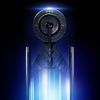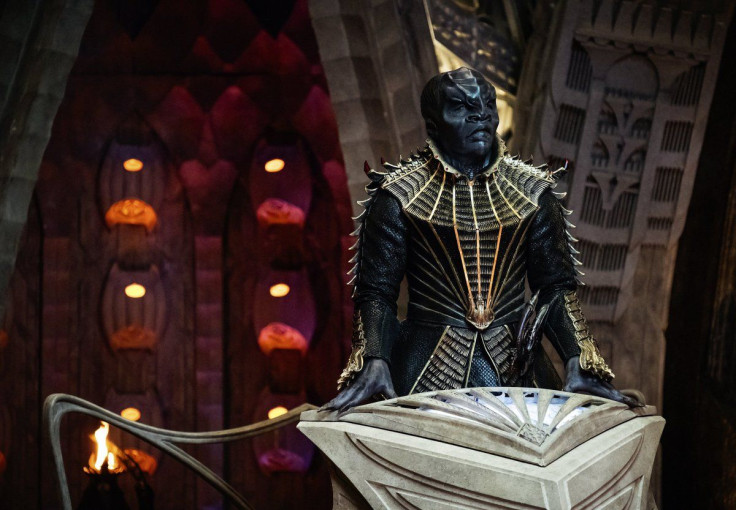Oh, what could have been. Star Trek: Discovery has a new trailer and we’ve got some problems with how the show is shaping up. Still, it’s better to stay optimistic, hope for the best and give Star Trek: Discovery it’s fair shake. Both Star Trek: Generation and Star Trek: Deep Space Nine didn’t get really good until after their second seasons, so Discovery deserves that same courtesy. But it’s so hard to read about what Discovery was meant to be under the direction of Bryan Fuller, who proved himself one of network TV’s only visionaries with Hannibal. A new Entertainment Weekly issue includes new details on Fuller’s plans for Star Trek and eventual ousting. Some of the reveals are heartbreaking to read.
EW ’s James Hibbard credits Fuller with Star Trek coming back at all. Fuller “for years publicly lobbied for the return of Trek to television, specifically with a black woman at the fore.”
But his original pitch looks very different from what Discovery became. “The original pitch was to do for science fiction what American Horror Story had done for horror,” Fuller said. “It would platform a universe of Trek shows.”
There’s nothing particularly special about anthology shows in themselves, but the scope of Fuller’s plans reveal what we lost. The first season, Discovery, was meant to be a prequel, with subsequent seasons set contemporaneous with Star Trek: The Next Generation and eventually the furthest forward in time Star Trek has ever been, beyond the Dominion War portrayed in Star Trek: Deep Space Nine, which ended with the Alpha Quadrant of our galaxy — every Star Trek series’ primary setting — radically realigned.
Fuller was still running Discovery when those plans were quashed by CBS. EW describes that decision as “the first conflict of vision between a powerful company and an inventive writer that would eventually lead to a dramatic falling-out.”
What followed was crisis after crisis. Fuller pushed back against CBS’s choice to direct the pilot, David Semel. He lost. The series went over-budget, particularly with production design overages. CBS wanted to launch Jan. 2017, but Fuller wanted more time “to design the new show’s uniforms, sets, and aliens, while also figuring out his first seasons’ complex arc.” But while many battles were of the “creative genius vs. the studio machine” variety, CBS’s primary complaint was more justified: Fuller was spending too much attention on his other series, American Gods.
Last October, CBS announced Fuller was leaving the series, but would continue to be involved. But Fuller quickly distanced himself from the series. EW confirms what everyone suspected: Fuller was “asked to leave” Discovery by CBS.
While his ambitious plans for the new series to rove all over the Star Trek timeline were thwarted early, EW hints the true damage was done after Fuller left. “Some of Fuller’s ideas were tossed, however — from the more heavily allegorical and complex story line to his choice of uniforms (a subdued spin on the original series’ trio of primary colors).”
That’s damning. CBS cut the allegory and complexity. It’s hard to imagine two qualities more essential to what fans like about Star Trek. Well, shit. What a depressing thing to read.
Fuller’s reaction to the Star Trek: Discovery trailer was diplomatic: “What I can say is… my reaction was that I was happy to see a black woman and an Asian woman in command of a starship.”
- Richly redesigned Klingons
- Complex and explicable motives
- Great new Starfleet characters
- Incredible production design
- Generic space combat and action
- Too many flashbacks
- Eschews subtext, doesn't put enough faith in the audience



















